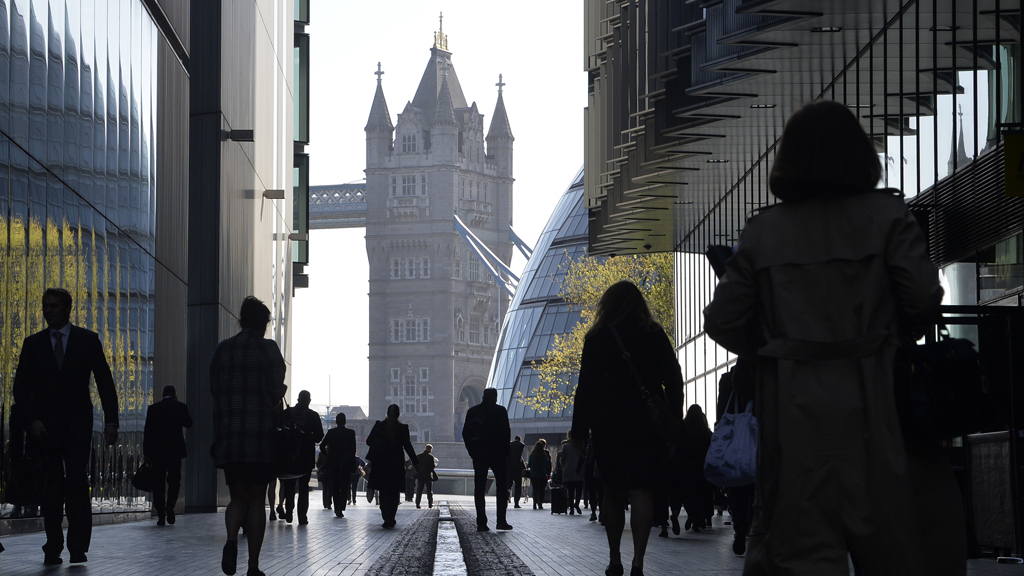Pay increases finally exceed rise in cost of living
The government says Britain’s recovery is on track as official figures show average pay rises outstripping inflation for the first time in four years and unemployment continuing to fall.

Pay, including bonuses, was 1.7 per cent higher in the year to February, compared to the latest consumer prices index (CPI) inflation rate of 1.6 per cent.
The coalition said the news, coupled with a fall in unemployment of 77,000 and a record number of people in work, showed that its policies were laying the foundations for a stronger economy and that “Britain was working again”.
But Labour, which argues that voters are enduring a “cost of living crisis“, said working people were still £1,600 worse off than when the coalition government came to power in 2010.
Unions said that if bonuses were removed from the official figures, average earnings only rose by 1.4 per cent – below inflation.
Strikes
Millions of health and local government workers are gearing up for possible strikes in protest at pay increases of 1 per cent or below.
The Office for National Statistics said it was the first time since the spring of 2010 that CPI inflation had not exceeded the increase in pay, although the figure for public sector workers was 0.9 per cent, compared with 2 per cent in private firms.
The fall in unemployment to 2.24 million in the three months to February means the jobless rate now stands at 6.9 per cent, while numbers in work have reached a record 30.3 million.
The government may be pleased by today's figures, but others are more circumspect. Real average wages - what we earn after inflation has been taken into account - have fallen by 6 per cent since the recession, according to the Resolution Foundation.
Jonathan Portes, director of the National Institute of Economic and Social Research, told Channel 4 News: "The idea that six years after the start of the recession real wages are 6 per cent lower, and real wage growth is zero, is unprecedented in British economic history. Prior to the recession there was postive real wage growth probably for as long as most people can remember.
"Since the 1970s we have not seen real wages fall in this country. So to have years of falling real wages and the idea it's a success does not compute."
Mr Portes said the main cause of falling living standards was the recession triggered by the global financial crisis, not the actions of governments. But he said he believed the recovery could have come sooner if the current government had not embarked on its austerity drive.
"I think wage growth wage would have been higher had they not cut so quickly in the first couple of years."
Long-term and youth unemployment have both fallen. There are 1.42 million people working part-time because they cannot find full-time work, a fall of 17,000 over the quarter, but 10,000 higher than a year ago.
Chief Secretary to the Treasury Danny Alexander said: “These figures are some of the strongest evidence yet that we are embedding the recovery.
“With earnings now rising in line with prices and employment rising, these figures reinforce the fact that the only way to higher living standards is to take the difficult decisions needed to deliver our long-term economic plan.”
‘Lost ground’
Shadow Work and Pensions Secretary Rachel Reeves said: “At long last, earnings are finally rising faster than CPI inflation when bonuses are included, but after four years when prices have risen faster than wages, there is a huge amount of lost ground to catch up.
“Working people are now over £1,600 a year worse off than when David Cameron came to office, most people are not feeling any recovery, and the link between the wealth of the nation and family finances remains broken.”
TUC General Secretary Frances O’Grady said “the cost of living crisis is far from solved” and “this is not worth even half a cheer”.
But Neil Carberry, the CBI’s director for employment and skills, said: “We’ve always said that as growth picks up more people will feel the benefits. Businesses are creating jobs across all sectors and real wages in the private sector are rising.”
-
Latest news
-
‘It was hard not to laugh on set’ – Swede Caroline lead on root vegetable mockumentary5m

-
Teachers to be allowed guns in Tennessee schools5m

-
Tory MP defects to Labour over NHS ‘chaos’2m

-
Al Sharpton on US campus wars and the US election race between ‘two old white men’5m

-
Israel-Gaza war continues to fuel protests and division in US, France and UK4m

-




